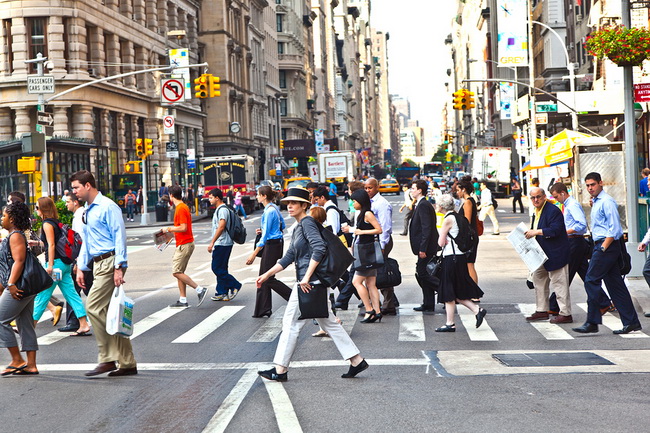- Make It Yourself Lavender Heart-Shaped Bath Bombs!
- 20 Things You Never Knew About “Down There”
- 12 Best Foods For Those Suffering From Arthritis Pain
- 12 Personal Hygiene Mistakes Almost Everyone Makes (Mom Never Told You About #4!)
- 15 Medicinal Plants And Herbs From The Cherokee People
- 12 Mind-Blowing Benefits Of Drinking Coconut Water During Pregnancy
- 12 Outstanding Winter Foods That Won’t Fatten You Up Like A Christmas Turkey
Is Living In The City Making You Crazy?

Photo credit: bigstock.com
Currently, a little over half the world’s population lives in urban environments. By the mid-twenty-first century, that number is projected to be over 60 percent. Much of this population growth and concentration will occur in the already-densely populated “megacities” of Asia and various regions of the developing world. As people migrate to cities in search of job opportunities, it raises some important questions about the effects this will have on their health.
Everyone knows that there’s more air pollution in cities, which can have a negative effect on people’s physical health. But how does city life affect people’s mental health? Studies appear to indicate that urban living can increase the likelihood of certain types of mental illness.
Urban Living vs. Evolution
Homo sapiens (humans) evolved into their modern form somewhere around 200,000 years ago, and for most the time since then, we’ve lived as nomadic hunter-gatherers. Most humans spent their waking hours outdoors in nature. Around the end of the last Ice Age, approximately 10,000 years ago, humans began living in permanent settlements, and over time, camps became towns, and towns became cities. In evolutionary terms, 10,000 years is barely the blink of an eye. Humans living in urban environments today aren’t that different physiologically or mentally from people living in prehistoric times.
Since the Industrial Revolution in the 1800s, cities have grown at enormous rate, and urban environments have become much more dense, loud, and polluted. What effect does this have on people who have evolved to live out in nature?
Continue to Page 2

Photo credit: bigstockphoto.com
The Effects of City Living on Mental Health
Think about all the sensory input you get living in a major city: crowds, traffic, noise, pollution, and more. Modern cities contain so much more external stimuli than the open, natural environments we evolved to live in. As you might imagine, this can cause a certain amount of stress in many people. Over time, chronic stress will have a negative impact on your physical health in many different ways, but also on your mental health.
A series of large studies conducted in Europe (mainly in Denmark and Sweden) found an increased risk of mental illness for people living in urban environments versus those living in the countryside. The research revealed a risk of developing psychosis at some point in life that was nearly twice as high for people living in densely populated concrete jungles. Further research appears to indicate that those who grow up in urban environments may be more at risk than those who move to a big city as an adult.
But what’s the reason for this? The various studies conducted on this matter appear to indicate that it in addition to all the stimuli mentioned above, it’s the exposure to crime and the lack of social cohesion – that is, a lack of familiarity with one’s neighbors and a sense of community – that contribute to an increased risk for mental illness.
It’s ironic that people can live surround by millions of other people, yet still feel isolated. As mentioned above, humans evolved to live as hunter-gatherers. Many anthropologists believe that people evolved to live in communities ranging from a few hundred to a few thousand. A professor of evolutionary anthropology at the University of Oxford believes that human beings can really only have a maximum of 150 deep relationships, a number that would be relatively easy to reach in a hunter-gatherer community. People living in modern cities might interact with far more than that going about their lives, but how many are truly deep connections? This social isolation is a contributing factor to the increased risk for mental illness.
READ ALSO: The World’s Healthiest People: Their Diet And Lifestyle Secrets Infographic
So, what’s the way out of this problem? If you live in a city, do as much as you can to reduce stress in your life. Get plenty of sleep and exercise, and pursue a career that’s a good fit for who you are. Take up yoga or meditation, identify the situations and people that cause you stress, and do what you can to rectify those things. If there’s one major advantage to modern living over prehistoric times, it’s that you have more control over your own life than your ancestors did. Health, both physical and mental, is to a large degree influenced by your own choices. Make healthy ones.
References:

































